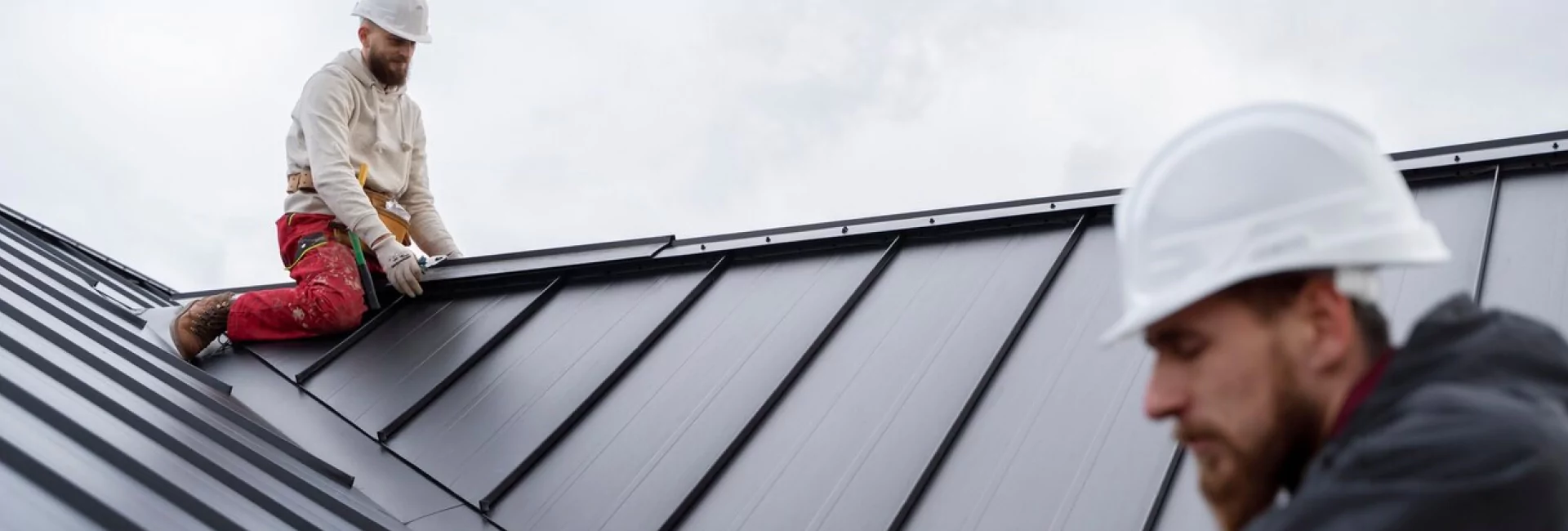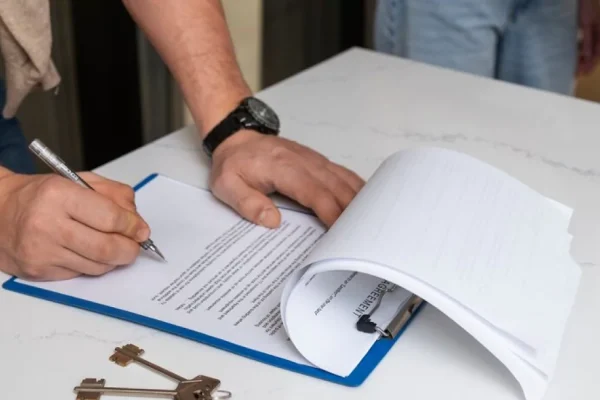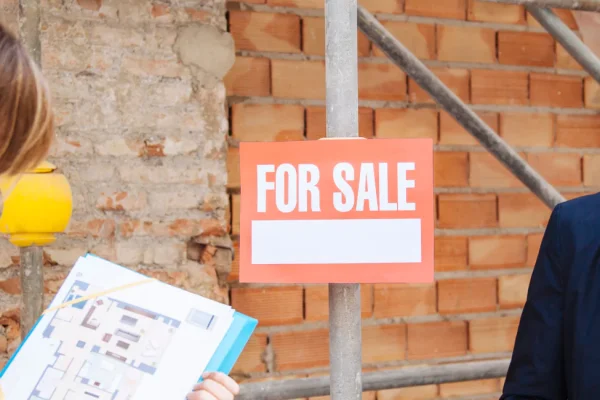Roof certification is important for homes in Florida which faces unique challenges due to the state’s climate. This article will provide a detailed analysis of what it takes to be roof certified and why this is paramount to home owners.
To begin with, we shall explore the particular hazards and environmental factors that expose Florida buildings to roofing problems. Sunlight scorching, heavy rainfall and an occasional hurricane are just but examples of some challenging weather elements in this place. A certified roof therefore acts as a safe haven that protects your house from such.
Afterwards, we’ll look at the step-by-step process of acquiring a roof certification. This involves a comprehensive examination carried out by competent professionals who examine your roof’s condition identifying any weak linkages or areas of concern. The certification process does not only point out current defects but also serves as a proactive measure towards possible future complications.
Furthermore, the blog post will also highlight the material gains associated with having an accredited roof. Apart from safety and structural pros; such roofs can attract better prices when selling homes among other benefits. Some buyers look for certified roofs more than anything else when they want to purchase property in Florida because it is an investment that can be appreciated by both existing and prospective homeowners alike.
What is Roof Certification?
An inspection is a formal evaluation of the roof by professional roof inspectors. It involves a detailed examination to determine the present state, strength and overall well-being of an individual’s roof. The main objective is to pinpoint any current as well as possible future issues that might undermine the efficiency of the roof.
Understanding Florida’s Roofing Challenges
Intense Sunlight and its Impact on Roofs
Florida, the Sunshine State, has a climate that features a lot of sunlight and provides warmth and pleasant weather. However, Residential roofs are affected by constant exposure to strong sunlight as it poses challenges to them. The focus is mainly on the effect of UV radiation on roofing materials such as asphalt shingles that are widely used in this area.
Asphalt shingles have been damaged due to long hours of sunbathing. The constant sunlight in Florida speeds up their destruction thereby leading to numerous problems with time. One major consequence is the increased fragility of these shingles. Continuous onslaughts from UV rays cause asphalt to lose its flexibility, rendering shingles susceptible to cracks and breakage.
Additionally, over time, vibrant colors of asphalt may fade due to exposure to sunrays. Once deep and bright colors may gradually become dull thereby reducing the aesthetic value of the roof. This fading does not only appeal cosmetic but also have implications for reduced structural soundness in shingles.
Furthermore; under relentless Florida sunshine protective granules within asphalt shingles can deteriorate. These granules play an essential role in protecting the shingles against harmful UV rays. Consequently, as they disintegrate over time these tiles turn out being more open to savage solar radiations that destroy them rapidly overall.
Heavy Rains and Occasional Hurricanes
Florida’s exposure to heavy rainfall especially during the tropical storm season highlights a major challenge faced by homeowners; water intrusion. Florida’s tropical climate often welcomes downpours creating continuous threats to roofs. The incessant falling of raindrops can affect the integrity of roofing materials and worsen pre-existing vulnerabilities.
Additionally, Florida’s vulnerability to hurricanes exposes roof structures to further risks. In addition to bringing in excessive amounts of rain, these storms unleash powerful winds that are capable of causing destruction when they reach high speeds. Roofs bear the brunt of these double onslaughts as they have to contend with both heavy rains and strong winds, thus increasing their susceptibility for damage.
The combination of heavy rainfall and hurricane strength winds increases the likelihood of water seepage, leaking or even structural harm. As it keeps on raining without ceasing and the wind keeps pressing on, there may be weaknesses in the structure of a given roof which can lead to weak points that could possibly allow for entry points for water. Even well installed roofs may not withstand a hurricane therefore it is upon home owners to take preventative measures in order to strengthen their roofs against these natural phenomena.
The Roof Certification Process
Roof certification is an exacting scrutiny that is done by qualified inspectors or roofers in order to determine the condition and reliability of a building’s roof. This inclusive assessment consists of several important stages aimed at establishing the general wellness of the rooftop and pinpointing areas with definite issues or possible challenges that might compromise its efficiency.
Initial Inspection:
To start off, the procedure typically begins with an opening visitation where the inspector examines any signs of damages or deteriorations on the outside of a roof top. In this case, he/she looks at such things as shingles, tiles or metal panels that make up the covering material of the roof and too flashing, gutters, vents and other details.
Interior Inspection:
Inspectors, apart from surveying the outside of the roof, sometimes also perform an internal inspection to identify leakage damages or problems on its structure. This can involve checking the attic for any signs of water invasion like mildew or rot that indicate weak spots in the roofing material beneath.
Evaluation of Roofing Materials:
Roofing materials are evaluated by inspectors who determine how well they are able to last as well as their durability. Besides, they seek for the wear and tear symptoms like shingles that are cracked, have curled or even missing and signs of degradation due to weathering such as fading and granule loss.
Identification of Potential Issues:
Inspectors usually keenly scrutinize rooftops during the inspection to ensure they are not damaged, deteriorated or weak. Included is pinpointing where water may be entering it, probable points of leakage or sections that require attention.
Documentation and Reporting:
Inspectors provide detailed documentation and reporting outlining their findings, including any issues identified during the inspection and recommendations for repairs or maintenance once the inspection is complete. This documentation serves as an official record of the roof’s condition and can be used for insurance purposes or when selling the property.
Certification Issuance:
Roof certification can be given, based on the findings of an inspection if it is established that the roof meets certain specifications and its conditions are in order. This certification, however, could not be granted unless homeowners settle any issues identified or carry out repairs that may be required.
Benefits of Having a Certified Roof
Roofs that are certified have multiple advantages beyond just meeting safety standards. Whether you are a current homeowner or considering selling your property, knowing these benefits will show you how important it is to get a roof certification.
Enhanced Structural Integrity:
A certified roof is vigourously checked to ensure that its structures are strong and do not have any major defects. This strength enhances the safety and reduces any problems in the future which might affect the performance of a roof. Consequently, owners can be confident about their homes’ structural aspects making them feel safe and at ease.
Increased Property Value:
The market value of homes with certified roofs is often higher. A well-kept and certified roof is highly treasured by potential customers, especially in places like Florida which are susceptible to adverse weather conditions. It may be a strong point in selling as it can attract more people and increase the speed of sales. The increased property value translates into a tangible return on investment for homeowners.
Extended Lifespan of Roofing Materials:
Roofing materials’ longevity is prolonged by the certification process which includes scheduled inspections and proactive maintenance. This ensures that even minor concerns such as fixing damaged shingles or sealing possible leaks are promptly dealt with to prevent premature decay, thereby helping homeowners prolong their roof’s life span. This method saves homeowners substantial expenses for frequent repairs or early replacements.
Insurance Advantages:
Certified roofs are regarded as low-risk by most insurance firms, therefore. Several insurers may hence offer lower premiums or better conditions for residences with certified roofs since they perceive them to be well-kept and less prone to harm. The end result of this is actual savings in the pockets of homeowners who pay lower insurance rates since roof certification is seen as a wise investment.
Proactive Issue Identification:
The certification process involves a comprehensive examination by trained professionals, aimed at identifying potential issues and vulnerabilities before they escalate. The inspectors are meticulous in assessing the condition of the roof, and indicating the problematic areas such as breaking down flashes or potential leakage points. When homeowners deal with these issues ahead of time, they will save themselves money spent on repairs and also reduce cases of structural destruction caused by water.
Marketability and Quick Sales:
Another reason why certified roofs are important is that they help to increase the value of a property and also facilitate faster sales. Houses with certified roofs are often more attractive to potential buyers since they provide extra protection and have been well preserved. Such certification however, proves that the building is made of good materials and will not be prone to any defects, hence making negotiations easy and quickening the sale process.
Compliance with Local Building Codes:
Roof Certificates guarantee that the roof meets all local construction regulations and concerns for both homeowners and potential buyers. Keeping to the building codes is important in keeping the property safe, structurally sound and in line with legal requirements. Certified roofs will follow established standards that disengage prospective liabilities and give a relaxing atmosphere to homeowners.
Peace of Mind for Homeowners:
Possibly the most prized benefit of all is having a certified roof that gives one peace of mind. The knowledge that one’s property is well shielded and adheres to industry regulations eliminates the worry and anxiety connected to possible roofing troubles. They can live peacefully in their abodes knowing it cannot be threatened by unforeseen events and weather contingencies.
In a nutshell,
However, the benefits of a certified roof go far beyond its certification. Besides guaranteeing the strength of your house, a certified roof also increases its marketability, durability, and overall beauty. This is especially true in places like Florida that have many weather-related problems; hence, the peace of mind that comes with having such a well-maintained and examined ceiling is priceless.
Here at Quality Property Inspector, we know about what Florida weather does to structures and why having a strong roof is important to homeowners. In Miami we are the top professional Roof Inspector who are proud to offer comprehensive inspections that go beyond just surface level examination. Our team of professionals has years of experience in detecting potential problems as well as local building code compliance and will provide you with an extensive certificate that will always be used as evidence of quality in your property.
When you invest in a certified roof you are investing in safety, value and life span for your home. We aim to equip homeowners with information that helps them make decisions about their houses confidently. If you want to sell your house or just wish it were better protected against bad weather, then let us be your friend since Quality Property Inspector provides robust roofs that are certified for peace of mind.
Call us now so as to arrange for our specialists’ survey on rooftops based in Miami thereby ensuring a bright future ahead for your family’s dwelling place only at Quality Property Inspector where our team regards itself not only as one performing certifications but fortifications too.




